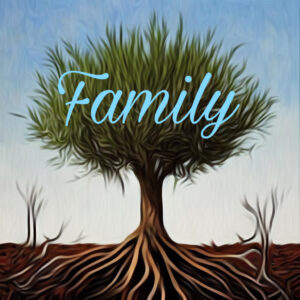Lovely Genealogies
Those lovely genealogies. You know what I’m talking about. Those long lists of tribes, generations and peoples, with impossible tongue twisting names that force even the most seasoned lector to stumble and stammer over the syllabic hills and valleys of a phonetic purgatory.
Yeah, those genealogies.
Mercifully, those genealogical lists don’t appear too often in the daily readings, but every now and then you find yourself internally cringing as you realize that the lector is about to attempt a series of tongue twisters to end all tongue twisters—which will eventually reverberate around the church, and twang your overly sensitized auditory nerve.
And then, like a trip to the dentist, you realize that the experience is going to live up to the expectation, as the lector steps to the pulpit and begins the reading. The pronunciations are everything you feared, and you say to yourself for the 20th time, why are genealogies so important?
Indeed. Why have the ancient archivists taken the time to painstakingly reproduce those seemingly innocuous lists? Couldn’t they have left them out? Shouldn’t they have left them out?
It’s so typical of us to look at history through the lens of modern culture. The genealogies of long-forgotten peoples seem utterly irrelevant, and yet for the peoples of the past … they provided that all important filament of belonging that connected beliefs, talents and physical attributes to present realities—providing context and understanding for the individual as well as the collective.
Litanies of ancient tribes and peoples would hardly seem necessary in today’s world, but that is only because we have made technological advances that no longer require those tedious lists. They are still just as important as they were 5,000 years ago, we just tabulate them a little differently: in the forms of genealogical databases and DNA testing.
Long ago, I appointed myself as the unofficial genealogist for my family. I am fascinated with my genetic lineages, and the tales they have to tell. Over the years I have discovered that I come from a long line of writers, composers and teachers. I have been all three, at one time or another.
I also hail from a hardy Irish, seafaring family. They were Merchant Marines, sea captains and watermen. I have never been any of those things.
Juxtaposed to my more illustrious chromosomes, I admit to a lineage of scoundrels as well. In fact, I discovered that several family members in my distant Irish lineage were exiled to the Americas because they were involved in a plot to kill the Queen of England. Oh dear! Rest assured … I have never done that, either.
Still, I find these trends to be fascinating. They tell me so much about the genetic material flowing through my veins, and allow me to investigate the strengths and weaknesses in my family line. But most importantly, they provide me with a sense of belonging. I know where I came from, and where I belong in the human saga.
Could it be so very different for the family of God? Wouldn’t it be necessary … even vital, to maintain a record of the ancestral filament that stretches from the first Adam … through the Patriarchs and Prophets to the Second Adam: Jesus Christ?
That would be an absolute imperative, I think.
Those truly remarkable genealogies in the Bible are a codified record of the work of God down through the ages. They are documented evidence of God’s promise of salvation from Adam to Christ, and they are a record of the critical impact upon the people of God—despite the victories, and failures of their human endeavors.
But most importantly, they are a record of the promise of God—wending its way throughout salvation history to the entrance of Jesus Christ upon the world stage—Who is the fulfillment of that promise.
Yes, those lovely, lovely genealogies are still difficult to pronounce, but they exist as evidence of God’s faithfulness and love to an often difficult—yet salvageable people.
At this point, one has to ask: Why has God remained so steadfast throughout all of human history?
Because He is our Father, and He loves us.
Besides … we’re family.
“… [For] you are all one in Christ Jesus. And if you belong to Christ, then you are Abraham’s descendant, heirs according to the promise.” (Gal. 3:28-29)
©Copyright 2023 by Sarah Torbeck
As the genealogical designee of my own clan, Sarah, I found your article a delightful weave of insights about fate, family, and faith. Thank you!
Thank you for your comment. 🙂
As you see by my post, I used to really struggle with the question of, “Why,” the genealogies were in the Bible. I realize there are important historical reasons for their inclusion as well, but it wasn’t until I became an amateur genealogist, that I truly began to perceive their importance in the family history of all of us.